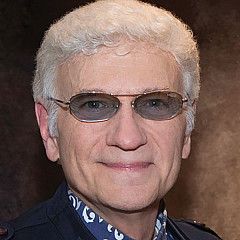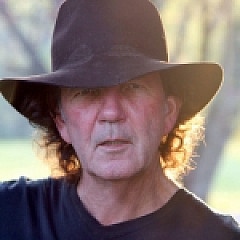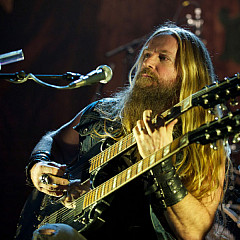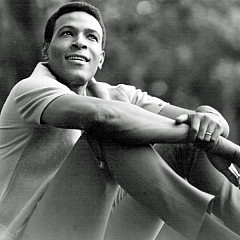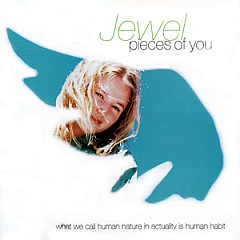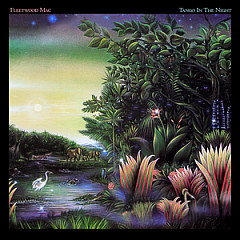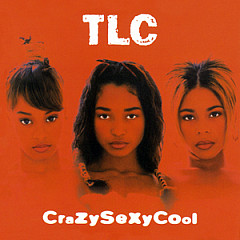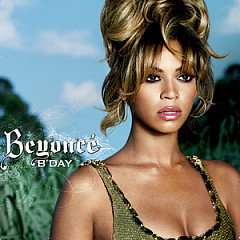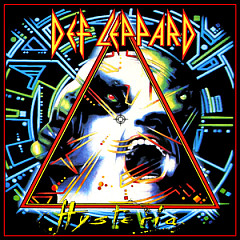 Kimberly Williams used to drive a Saturn. It's the car her husband Brad Paisley sings about on his #1 country hit "She's Everything":
Kimberly Williams used to drive a Saturn. It's the car her husband Brad Paisley sings about on his #1 country hit "She's Everything":She's a Saturn with a sunroof
With her brown hair a-blowing
The song came courtesy of Wil Nance, a Nashville mainstay who did valuable time as a waiter at the Steak and Ale before earning his keep as a songwriter, with several tracks recorded by George Strait, including another chart-topper, "Round About Way."
"Songwriting ain't easy," Wil tells us. It beats digging ditches (another job Wil had), but the songs have to keep coming, even when the well of inspiration runs dry. With decades in the business, Wil has many stories to share and insights on the craft. But first, we need to find out about this Saturn.
Wil Nance: You know, it's funny you say that. That wasn't actually my line. My original line was, "She's a ragtop LeBaron with her auburn hair a-blowing." And Brad changed it to, "She's a Saturn with a sunroof and her brown hair a-blowing."
Songfacts: Why?
Nance: Well, I wrote that song by myself originally and when Brad heard it he loved it. He held onto it, and after about five months I get a call from Chris DuBois, and he said Brad loved the song but if he's going to sing it in front of 20,000 people every night, he wanted to change a few of the words to be more about his wife. And I guess Kimberly used to drive a Saturn with a sunroof.
Songfacts: OK, that makes more sense. Because a ragtop LeBaron is clearly a lot sexier than a Saturn.
Nance: I know, and that's what my wife was driving. I just looked at what she was driving and I said, "She's a ragtop LeBaron with her auburn hair a-blowing." So he changed that line.
The song originally started as, "She's a red pair of tennis shoes." He changed it to, "She's a yellow pair of running shoes."
Songfacts: I guess that must happen a fair amount when you have a very high-profile singer. It's your song but they want to customize it, personalize it, so they're going to change some words around.
Nance: Yeah, that won't happen a lot but it happened in this case and, hey, I'm glad it did, man. He had more access to the public than I did.
Songfacts: Well, that's quite a breakthrough for you. I think you wrote some of the George Strait stuff before you came out with that, so it's not like you weren't established, but when "She's Everything" comes through, that's a whale. How did that change your life?
Nance: Oh, it changed our lives tremendously. Financially, of course. We were able to pay our house off and I've got a couple of rental properties now, and without that song none of that would have happened.
I guess it gave me a little bit more of a better profile as a songwriter. I am very thankful for the success I've had, but I've always been scratching and scraping to get on records so it's never been easy. Even after I had the hit, I didn't have people beating my door down for more songs. It didn't change it a whole lot that way, but it's all good.
Songfacts: You said you were married when you wrote that song.
Nance: And I'm still married, yeah.
Songfacts: What I'm trying to figure out is how much of that song is real life for you?
Nance: All of it. I'll tell you what, there are songmakers and there's songwriters and sometimes we have to be a songmaker just because of the business when people are paying us to write songs. But that's people who sit in rooms and try to make up songs, and that's hard to do.
Songwriting is when you take a look at what's around you and you go, "I'm going to write a song about that." And, to be honest with you, those are easier to write. I was songwriting when I wrote that song:
 Brad Paisley, Wil, Holly Nance
Brad Paisley, Wil, Holly NanceShe's a holey pair of jeans
She's a pair of cool sunglasses
She's a sexy little thing
And then I started thinking about every other woman in the world plus my wife, and if I can get every woman to think this song was about them then I got a hit on my hands. That's how I approached that whole song.
Songfacts: I'm intrigued by what you're talking about with songmaking versus songwriting. There are clearly many times that you find yourself in an office or some kind of environment with a scheduled appointment and you have to write a song because it's your job. So, how do you make that distinction and are there times that you're in songwriting mode versus songmaking mode?
Nance: On good days, I'm in the songwriting mode. On other days it's songmaking. And there's people making lots of money making up songs, but those are the songs you hear and you go, "Yeah, I've heard that subject matter before and someone got a drum loop going and they made up a song and they made it rhyme. That's all fine and dandy."
I'll be honest with you: I've never been able to be successful doing that. And I've tried it. When you write songs 300 days a year you've got to try everything you can - you just can't sit in a room and do nothing. But, man, the best songs that I've written are the ones where I'm a songwriter and I'm going, "Hey, you know, what can we write about?"
Sometimes, if it's a young artist, I'll say, "What's happened to you lately? Tell me something that's happened to you." And if they tell me something and it strikes a chord with me, in my heart and literally on the guitar, I go, "Let's write that because it's going to be a better song and it's going to be more fun to write and it's going to be easier to write."
Songfacts: What's one of the tracks that comes to mind that you wrote when you were in that inspirational songwriting mode?
Nance: Songwriting mode? Well, other than "She's Everything," I've got a song that I wrote with a couple of buddies, Steve Williams and Sherrié Austin, on one of George Strait's records called "Where Have I Been All My Life." That was definitely a songwriting mode and I love the song. It wasn't a single, but he played it in his live show for a year and a half.
I had that idea for a year and my co-writer kept saying, "Man, let's write this song." We went down the wrong path, but we cracked the code and figured out how to write this song:
I'd been down the road, to work and back
Been in what I thought was love a few times
But every once in a while, I stop and ask
Where have I been all my life?
These days broccoli don't taste so bad
Neither does swallowing my pride
I'm agreeing more and more with my old man
Where have I been all my life?
That's just real stuff, you know?
Songfacts: Well, it's also got some specifics in it. For instance, he doesn't sing, "And I heard that song." He says the specific song, and it's "What A Wonderful World" by Louis Armstrong. Did that happen in real life for you?
Nance: I love the Louis Armstrong song so it did happen in real life. The older I get, when I hear that song, wow, it moves me way more than it did when I was a 20-year-old. I listen to those lyrics and I go, "Wow! What a great song." Then the melody, of course, is just beautiful.
Everything in that song is real. When you're singing, "Some years are clear and some are kind of blurry. Mom and dad sure got old in a hurry," I mean, how real is that?
Songfacts: Another George Strait song you wrote that I think is really cool is "If Heartaches Were Horses." Can you talk a little bit about that one?
Nance: That's kind of funny. I wrote that with the great Dean Dillon who's had 80 George Strait cuts, and my friend Buddy Brock. It's funny, I moved to town in 1987 and I moved here basically because I heard Dean Dillon singing some songs he wrote and I knew he'd written some songs for George Strait. It inspired me so much I went, "I'm moving to Nashville." And so 20 years later after I moved to Nashville, and Buddy Brock says, "Hey, do you want to write with Dean Dillon?" I go, "You're dang right I do. I'll write with him next Tuesday or whenever."
 Wil with George Strait
Wil with George StraitI went up to Buddy Brock's house and I said, "Hey, I think I've got an idea for me, you and Dean. If heartaches were horses..." and before I could even get anything else out he goes, "And hard times were cattle."
So, we took that into Dean and we ended up writing that song. Dean owns horses and he's kind of a wannabe cowboy, and of course, George Strait's a cowboy - he's a roper and stuff. You know, it was a little bit of songwriting and a little songmaking on my part but that's how that song came about.
Songfacts: Well, that song almost sounds like it should have the title "Home Ain't Sweet Home On The Range." I love that line - it's very clever.
Nance: Yeah, "Home ain't sweet home." That was Dean's line. I had the line right before that. I said, "Just when I think I've got life by the reins," and I remember Dean goes, "Home ain't sweet home on the range."
Nance: [sarcastically] You think?
Songfacts: Yeah, and what's interesting is now sometimes there's even songs about that backlash with lines about how we're sick of hearing about beer and trucks and going out on a Friday night. So, now you end up working with a young songwriter like Mo Pitney, who does not fit that mold and seems to have his own ideas.
He explained how when he heard the title "Clean Up On Aisle Five," which sounds like it's going to be a hilarious song, he heard it as something completely different.
Nance: I was going down the road to write with somebody one day and I had talk radio on and it was some talk radio host going on about politicians, about what they were saying and how he didn't believe in it. And he goes: "Right, clean up on aisle five." Like, "Clean that stuff up." And on that given day I went, "Clean up on aisle five, is that a song idea?" So I grabbed my phone, and said, "Clean up on aisle five."
I had that idea for about a month and I showed it to a few people. I showed it to a guy named Ashe Underwood and this new singer, William Michael Morgan. I was writing with them and I said, "Guys, what about a song called 'Clean Up On Aisle Five'?" And Ashe Underwood said, "That sounds like a quirky song, like a funny song about a guy in a grocery store." We didn't write it.
I showed it to another guy and it didn't turn him on at all. I started messing with it at the house and I had the lines:
If I wasn't standing in that store
I might have laid right on that floor and cried
I heard that voice, I saw that smile
Clean up on aisle five
I had that much of the song written, and what inspired me was the Dan Fogelberg song:
I met my old love in the grocery store
The snow was falling Christmas Eve
Do you remember that one?
Songfacts: Yes.
 Wil with Mo Pitney
Wil with Mo PitneyI played him that song and I showed him what I had on "Clean Up On Aisle Five," and I go, "What do you think about that? Does that work?" And he looked at me and he goes, "I just got goosebumps. I think that's killer, let's write that." Two hours later we had a song written.
Songfacts: I'm glad you mentioned the Dan Fogelberg song because that was the first thing I thought of, but then I was thinking, "Mo Pitney's probably never heard this song before in his life."
Nance: Mo's a great country singer and I kept saying: "Are you sure this feels right?" You know, the feel we had on "Clean Up On Aisle Five." Finally, Mo looked at me and he goes: "Wil, let's just write this song. Let's don't worry about the Dan Fogelberg thing. Let's write this thing, it's going to be a country song, it's going to be a country 'Old Lang Syne' basically."
So, he kept me on track that way and we wrote the song - Mo had a couple of cool chord changes in the chorus and stuff. Even after we wrote the song, I wasn't sure if it was working and he sang it into my phone and I walked out of the room and listened to that thing up to my ear and I go, "Mo, that works, man." Because at the time it was so quirky. I went, "That moves me. That works in a crazy kind of way."
Now, some people, a very small percent, have said: "Meh, that title, blah, blah, blah." But I'd say 97 percent of people are on board with that song.
Songfacts: As of this morning, you have 642 published titles. That's quite a number. Do you remember most of those 642 songs that you've written?
Nance: When you say I've got 642 published titles, what do you mean? Like at BMI or something?
Songfacts: Yes. BMI.
Nance: No, I don't remember a lot of those. Golly, I've been here since 1987, so I've written probably between two and three thousand songs. So, in all reality, all those are published. Everything I've ever written, for the most part, is with a publisher somewhere.
So, no, I don't remember a lot of those songs. I remember most of the songs that have made it on a record, at least a major label record, but there's been a lot of independent cuts and stuff that I couldn't tell you how they go, that's for sure.
Songfacts: Well, with this many unique songs, I wonder if at times you've written about everything you could have possibly written and you could just go back to your old catalogue and say, "OK, let's work on this song again."
Nance: Now, it's funny you say that. I had a laundry basket full of notebooks and lyrics back when we used to write on paper instead of laptops, and I kept that laundry basket around forever thinking, "I want to dig through that. There's bound to be some nuggets in there somewhere." And every once in a while I'd dig through and I'd go, "That's not good and that's not good." Finally, one day, I picked that laundry basket up and I went out to my trash can and I just dumped the whole thing. I said, "I am tired of thinking I'm going to go through that."
I'd go through that thing and I've got to admit, I went through there and I found probably eight to ten places where it looks like I was trying to write the song "She's Everything." Not the actual title, but a song of that nature. But it just wasn't quite hitting the mark. Then I found other ideas where it was like, well that's that song that was a big hit so-and-so wrote but just not as good an idea.
Like, one for example, one thing I saw: "I want to know your favorite color, and I want to know your blah, blah, blah." And I said, "That's 'Who Are You When I'm Not Looking' but not near as good an idea."
You know, when you come up with an idea like "Who Are You When I'm Not Looking," that opens up a whole plethora of thoughts like, "What do you do when nobody else can see?" And that's intriguing. As opposed to, "I wanna know your favorite color and I wanna know your favorite song." That's just kind of eh. It's OK.
Songfacts: Some of the songs you write are pretty intense. You have to kind of process them and you can go back and listen to them over and over and pick stuff out and it really means something to just about everyone. I think "Only A Girl," the cut you did with Easton Corbin, is kind of like that, where he's just telling himself that it doesn't matter, but it does. When you write those types of songs, are you in a different mindset?
Nance: Yeah. "Only A Girl" was my buddy's title, Wade Kirby, and of course if you listen to the song close enough – and you have to listen to it to get it – we twist it.
That's a little bit of old-school songwriting. That's a little profoundness, which I think is missing in songs today, and that's why I started writing country music instead of writing songs in general: I love the profoundness in a great song and in great writers. And in that case he says, "It's only a girl," but then, when he sees these girls he goes, "Yeah, but when you're in love with someone else, it's only a girl." He's still in love with this girl that he's saying he's over - really he's not.
So that is a different mindset. To me, that's more satisfying. If I can get an idea where I think, "We can twist this thing a little bit," that's what I love to do.
Songfacts: Now, the men and women who write these profound songs, what they have in common is that they've been through a lot. The guy I really think of is Kris Kristofferson: if he didn't live this stuff, there's no way he could have written it. Am I correct in assuming that you have been through a lot of these emotions?
Nance: Oh, sure. I'm 59 years old, I've lived some life. You have to have lived it but you also have to have the songwriting head on you to be able to go, "I'm going to say that this way. I'm going to say that in a profound way but everybody's going to get it. When they hear this, everybody's going to go 'Wow, man, I get that, I've lived that too. I would never have thought to say it like that.'"
"She's Everything" is a perfect example. There's a little profoundness in that lyric, the way it's being said, and it's real stuff. I call it that a "list song," but the list has got to be right.
Songfacts: What did you do before you were a songwriter, Wil?
Nance: Shoot, I waited tables in town here for ten years at Steak and Ale. That's my Nashville life. Right out of high school I worked for a company that buried telephone cable for the telephone company. I did that for about a year and a half, and then I picked up a fiddle and we started a band that become kind of popular in St. Louis in the early '80s. And then I moved to Cincinnati and played in a band around '85 and '86, then in '87, I moved to Nashville. Got a job in a convenience store first and worked there for about eight months, got robbed and quit that job. Then I went to work at Steak and Ale on Murfreesboro Road and I waited tables there for ten years. Shit, I waited tables at the Hillwood Country Club after I'd had a couple of hits.
Songfacts: Well, that job is actually very good training for just about anything that deals with people.
Nance: Oh, sure it is.
Songfacts: I was a waiter for years and it really teaches you how to read people. I can see how that would be something that would improve your songwriting and give you a nice start.
Nance: Sure. You've got your antennas up, as far as you're listening and you're aware of what's going on around you. You're watching people and you're listening to what people say. When you're in good songwriting mode, that's what you're doing.
Of course, it comes in spurts. When I'm in a mode, sometimes everything sounds like a song, whether it is or not, and I love when I'm in that kind of space. And then sometimes, nothing sounds like a song and it could be the greatest idea in the world and I just wouldn't get it because I'm in that place where it's like I'm not hearing it.
Songfacts: Once you get married and start a family, does that make it more difficult for you to come up with song inspiration?
Nance: I don't know. That's a good question. In some ways I could say yes to that, in other ways no. I heard Dean Dillon say that he'd go out with these girls and he'd break up with them just to get his heart broke so he could get inspired to write a song again.
Songfacts: Yeah. So many of these songs come from a place when you're in turmoil and especially in a state of heartbreak. I sometimes wonder how you guys can find ways to keep this fresh and lively and keep that urgency.
Nance: Well, it's hard to do. I've quizzed myself and I'll say it out loud to my co-writers. I'll go, "Man, I'm trying to get in that place. I've been there. What did I feel like when this happened? What did I feel like when that girl broke my heart?" Sometimes you have to pull from the past.
But you're right, it's harder to do than it is when you're going through that. When you're going through it, oh man, you're wearing it on your sleeve. Songwriting ain't easy, I'll tell you that right now.
Songfacts: The last thing I've got for you, Wil, I'd like to talk about your song "Cool To Be A Fool" that you did with Joe Nichols. Could you explain how you came up with that song and the whole idea?
Nance: My first wife, who I moved to Nashville with, my car blew up when I came to town and she goes, "Well, you can buy a new truck but you can't have no air and no radio in it." So, I had to buy this truck – a Jeep Comanche truck – and it didn't have no air conditioning in it and it had an AM radio which quit after about three months. It was summertime and I was going to write with Steve Dean and Joe Nichols that morning. And I tell you what, when you're driving around in a little Jeep Comanche truck with no air conditioning - and we didn't have no cell phones, I didn't have an iPod, I didn't have a radio - you write songs, man!
I had two windows down, trying to get a little breeze blowing through the thing, and I was on my way over that morning and I started to sing:
If it was cool to be a fool
I'd be the hippest guy around
If a heartache made you famous
I'd be known from town to town
And I was thinking a little bit of that old Buck Owens' song that Johnny Russell wrote, "Act Naturally": "They're going to put me in the movies..."
And I thought, I wonder if we wrote one of those, that kind of idea.
So, when I got over to Steve Dean's house, Joe Nichols wasn't there yet, and I sang Steve Dean that much of the song and I go, "Is that too country for Nashville?" And he said, "We're in Nashville, dangit!"
He had to go to the post office, so we drove down to the post office and back and by the time we got back to his house me and Steve Dean had written that whole chorus. And then Joe Nichols showed up and we said, "Hey man, we're working on this song, what do you think?"
We wrote the two verses and Joe got a record deal and he ended up putting it on his record. That's pretty much how that song happened.
July 11, 2016
More Songwriter Interviews

